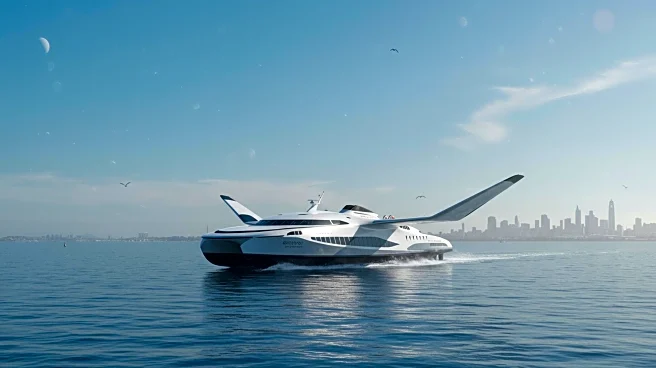What is the story about?
What's Happening?
Regent Craft has conducted a test run of its winged passenger ferry, the Paladin, on Narragansett Bay, Rhode Island. The vessel, designed to glide over water using hydrofoils, aims to revolutionize coastal transportation by offering a faster and more efficient travel option. The Paladin features twelve propellers and can transition between floating, foiling, and flying modes. The company plans to use this technology for commercial ferry routes and military applications, with backing from investors like Peter Thiel and Mark Cuban.
Why It's Important?
The development of the Paladin represents a significant advancement in transportation technology, potentially reducing travel time and environmental impact. For commercial use, it could offer a faster alternative to traditional methods, benefiting regions with heavy traffic congestion. Militarily, it presents a strategic advantage for troop movement and intelligence operations. The vessel's ability to fly below radar and above sonar could enhance stealth capabilities, addressing concerns over international tensions, particularly in the Indo-Pacific region.
What's Next?
Regent Craft plans further testing of the Paladin's flying capabilities by late summer or early fall. The company is working to secure regulatory approval from the U.S. Coast Guard and other global authorities. If successful, commercial operations are expected to begin by 2027, with manufacturing facilities already under construction. The U.S. Marines are exploring military applications, which could lead to further development and adaptation of the technology for defense purposes.
Beyond the Headlines
The Paladin's design challenges traditional transportation norms, offering a glimpse into future travel possibilities. Its development highlights the intersection of innovation and environmental consciousness, as the vessel is quieter and emission-free. The project also underscores the growing interest in alternative transportation solutions amid geopolitical tensions, potentially influencing future military strategies and commercial travel dynamics.
















